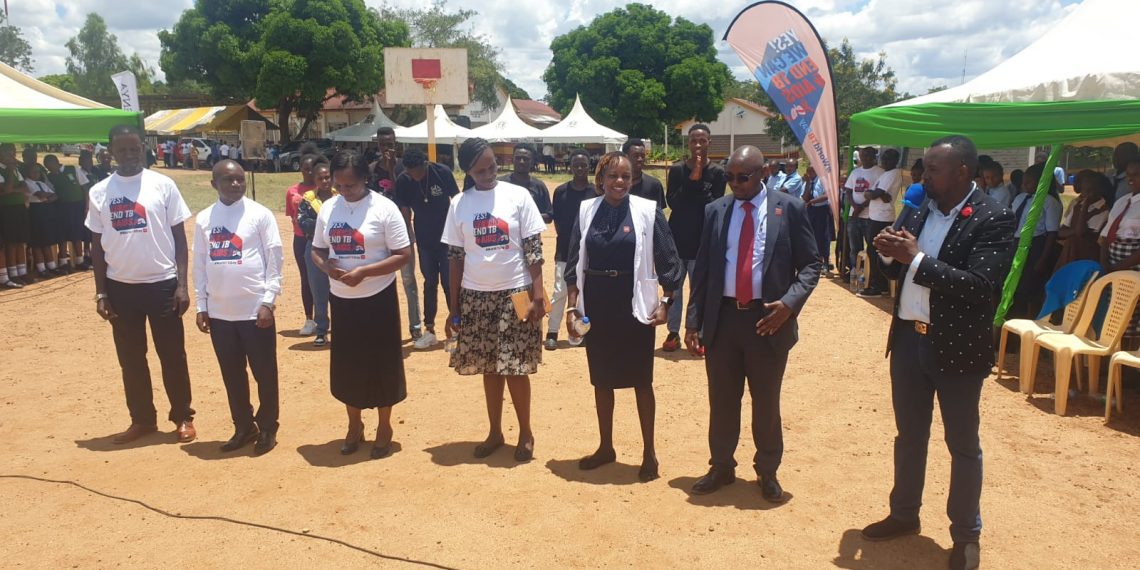Aids Healthcare Foundation (AHF) has urged national and county leaders to prioritize TB prevention and treatment by allocating sufficient funding towards the disease control.
Speaking at an event to commemorate World TB day themed ‘Yes! We Can End TB’ in Wote Makueni county AHF Country Director Dr. Samuel Kinyanjui pointed that inadequate financing for TB control interventions was due to shrinking donor support, inadequate budgets by government and lack of clear inclusion in the universal health coverage agenda.
“Kenya should adopt more efficient TB, HIV control models such as integration of people living with HIV into chronic care clinics,” he said adding that the country should consider public private partnership models that can attract sustainable funding to manage the two conditions.
Dr. Kinyanjui said that inadequate financing for TB control interventions affects health systems factors such as human resource for adoption of new efficient technologies and use of inappropriate tools and technologies.
The AHF country director explained that TB case detection is low with about 20 percent of possible cases missing out on treatment annually and still spread infections calling for more awareness and health workers involvement in active case findings for TB control.
Kenya has a funding gap of 55 percent of the budget to fully implement TB elimination programmes.
“We need to increase a multi-stakeholder approach to include advocacy to reduce stigma and strengthen referral system from nurse-led clinics to specialist-centred facilities,”
Dr Kinyanjui said adding that the disease remains a killer disease of humanity especially among people living with HIV which is exacerbated by lack of global targets on this group of patients.”
According to Centre for International Health Education and Biosecurity (CIHEB) Kenya’s Dr. Virginia Karanja, TB disease claims many lives and is ravaging the country’s most productive age group.
She said that there should be increased investment and uptake of new innovations to ensure equitable access to care
“We should adopt shorter TB treatment and regimen, technologically aided diagnostics introduction through multi-stakeholder approach, social mobilisation, prevention and treatment.
Makueni county Deputy Governor Lucy Mulili said more need to be done to eliminate TB and HIV stigma and recommended integration of TB in healthcare services to help in addressing TB burden especially among males.
Makueni County TB Coordinator
Joseph Mulei said TB case identification stood at 50 percent meaning that there is another half of infected people who could be infecting the unsuspecting public.
He said that the county is facing challenges in treatment and testing due to interruptions caused by diagnostic test breakdowns and health commodities supply disruption.
He noted that men are majority affected by TB because of their poor health-seeking behaviors and highlighted the need to build capacity healthcare staff on suspicion index.
He said that nutrition access to TB patients should be enhanced to help in prevention efforts.
Narrating her TB diagnosis journey, Julliet Mutanu Makueni county TB champion said that upon her diagnosis she faced a lot of stigma at home which resulted into her divorce revealing that stigma still persist in the society.
“In 2008 I was experiencing coughs and bought cough syrups. After using it I realized it was not going away which prompted me to visit health facilities to be treated after six visits I was diagnosed with TB and after my diagnosis put on drugs.”















